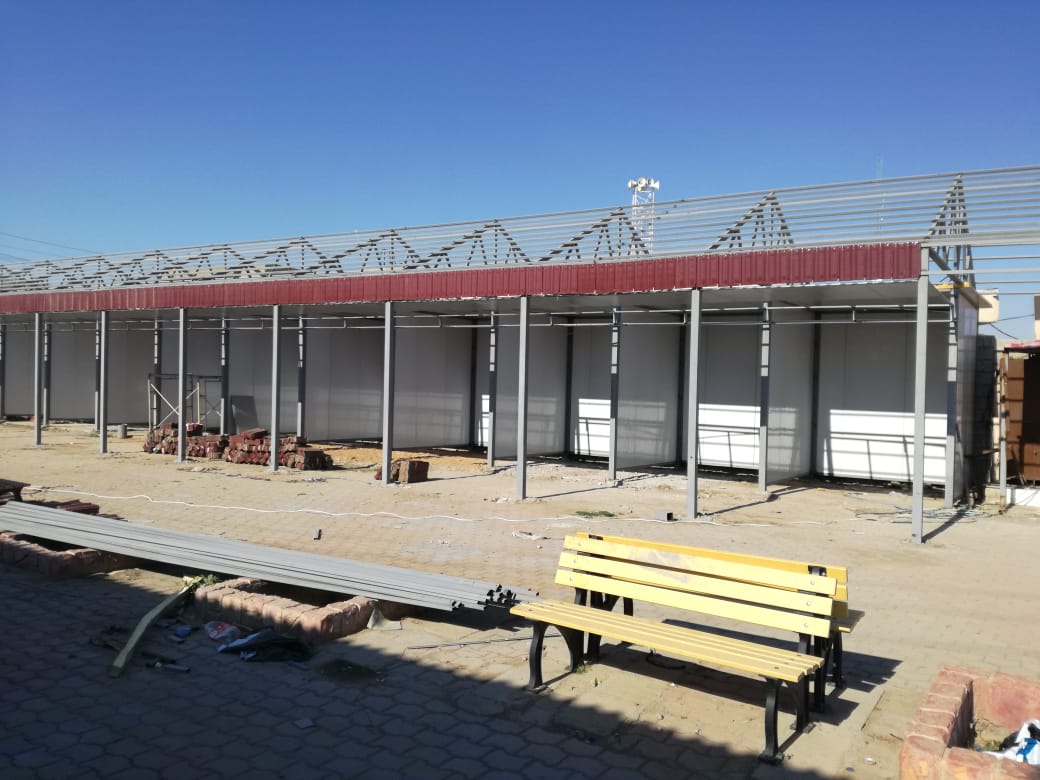Local administration and the United Nations are pushing hard to generate job opportunities for the youth especially in war-ravaged regions following the severe blow the Islamic State in Iraq and Syria ISIS caused to economy of the regions it has controlled in 2014 up to 2017.
The Directorate of Hawija District Municipality has started to establish two projects in the district center to generate about 250 job opportunities: the first is to establish a model market to curb the phenomenon of street vendors, and the second is to build a complex for libraries and petition writers end the spread of random kiosks at the doors of government departments.
"The projects are implemented with self-financing by our directorate," said Ahmed Shehab, the director of Hawija municipality, who confirmed "the projects provide job opportunities for the youth of the district and are part of the project on sustainable job opportunities."
Shehab, in a telephone conversation with the KirkukNow, explained that "these projects are among the first phase of a group of projects that will be implemented during the current year."
The first project will be a vegetable market for street vendors, and it will include 52 model shops near the industrial district, which will provide nearly 100 job opportunities for Hawija youth.
The second project includes the construction of a library and petition book complex near the Hawija Court, and the Residency of the district, with 40 offices, in a modern style and classified according to the designs that have been agreed upon.
“This project will provide more than 50 job opportunities, and end the spread of random kiosks at the doors of government departments,” Shehab added.
The district of Hawija, which was under the control of ISIS in 2014 till it was recaptured along with the city of Mosul by the Iraqi federal forces in 2017, is located southwest of Kirkuk Governorate, home to 300,000 people.
Regarding the cooperation and support of the United Nations Development Program UNDP, Shehab stressed that there is a project that includes the establishment of two markets with 100 stores for each market, to benefit from them to employ young people and give the district a modern look.
As for the International Organization for Migration IOM, a market will be established with 75 stores inside Hawija.
Shehab hopes 2022 budget will not be delayed alike 2021 which was delivered last October, which hampered the implementation of many projects.
The International labor Organization ILO said unemployment rate in Iraq has jumped from 9% early 1990s into 13% in 2020.
Out of 40 million Iraqis, 9.2 million are employed while Iraq's state-dominated economy is led by the oil sector, which provides approximately 85% of state revenue. The government pays 400% more in salaries than it did 15 years ago. Around three quarters of the state’s expenditures in 2020 went to paying civil servants of the public sector.
The burden of state employees has pushed the Iraqi government to halt employment, a step which piled hundreds of thousands of graduates and post graduates over the last few years.
Kirkuk and many provinces of Iraq regularly witnesses demonstrations and protests by postgraduates asking for state employment.
Five years ago, Iraqi parliament has endorsed laws number 59 and 67 to employ the top gradates and post graduates, a light at the end of long tunnel, as the private sector is tumbling due to corruption and dominance of militia rule over rule of law and state.





